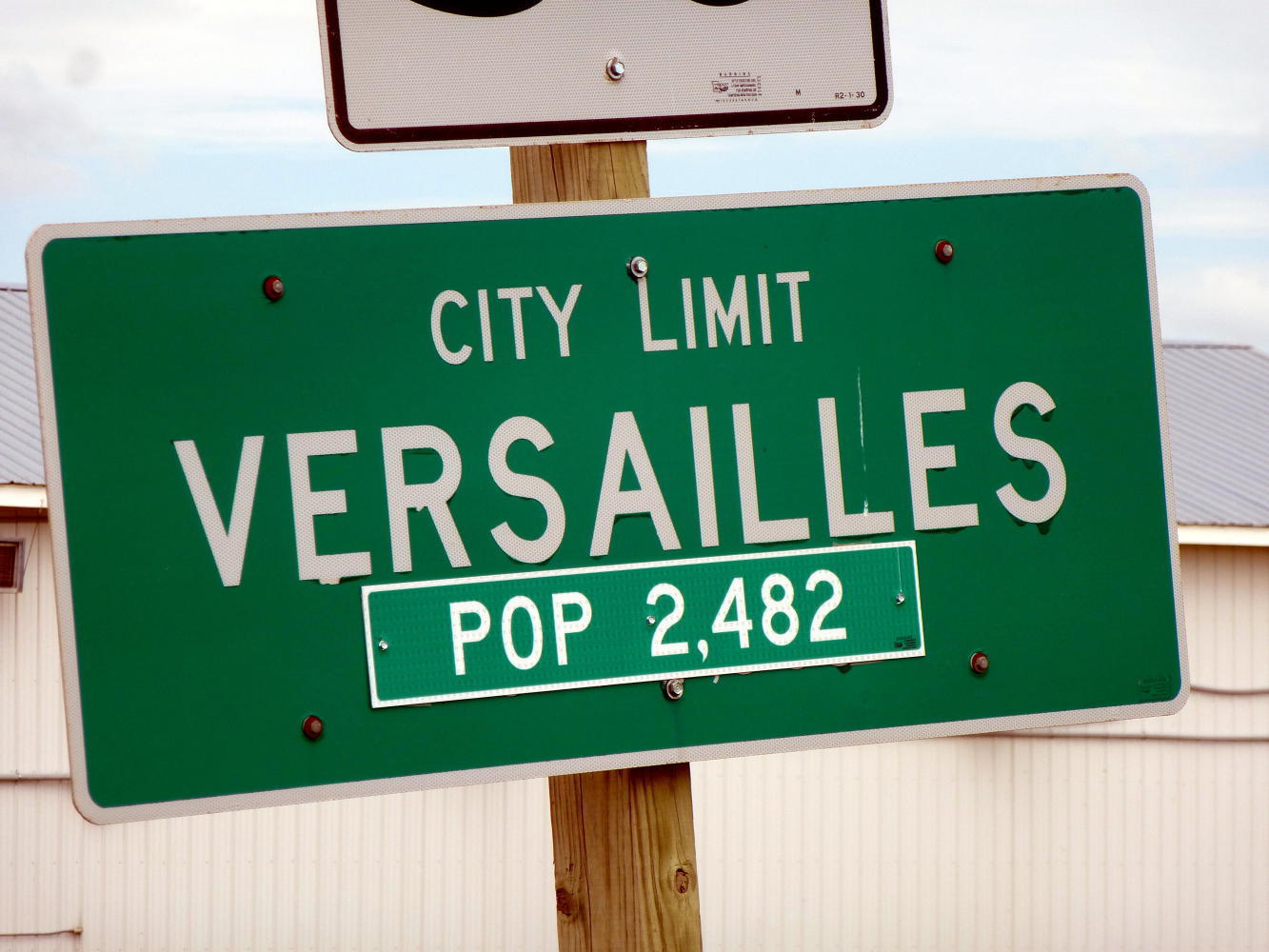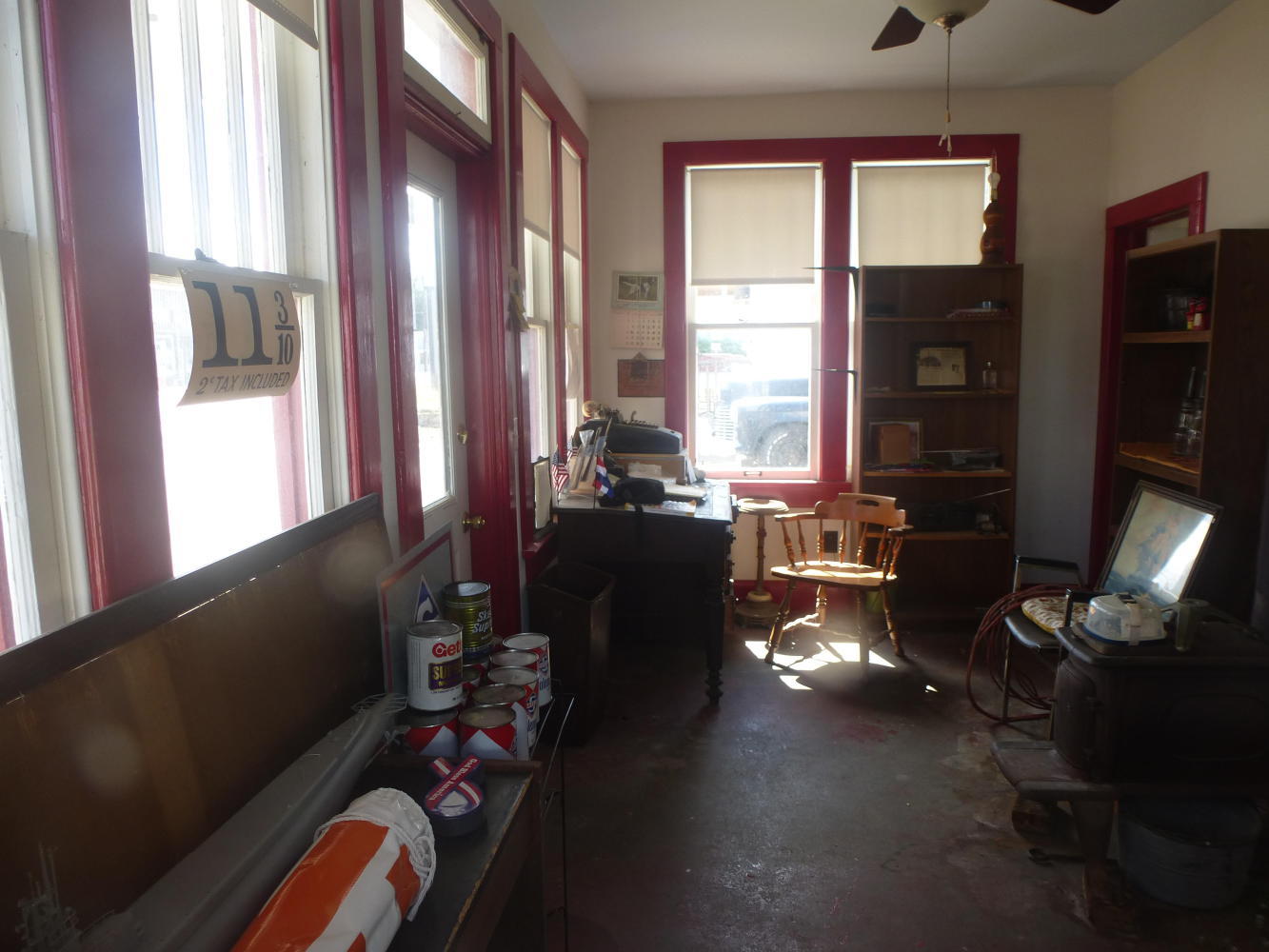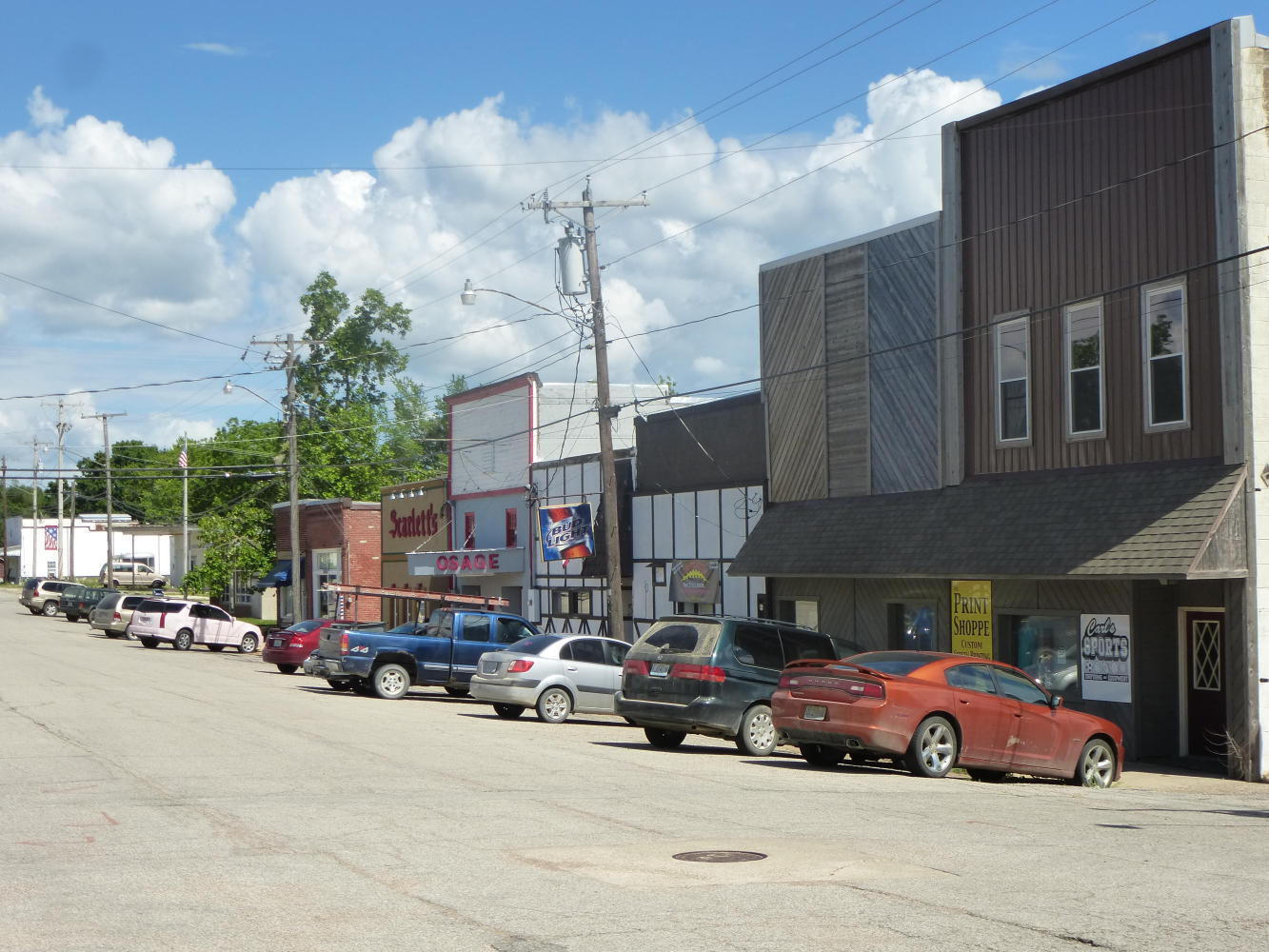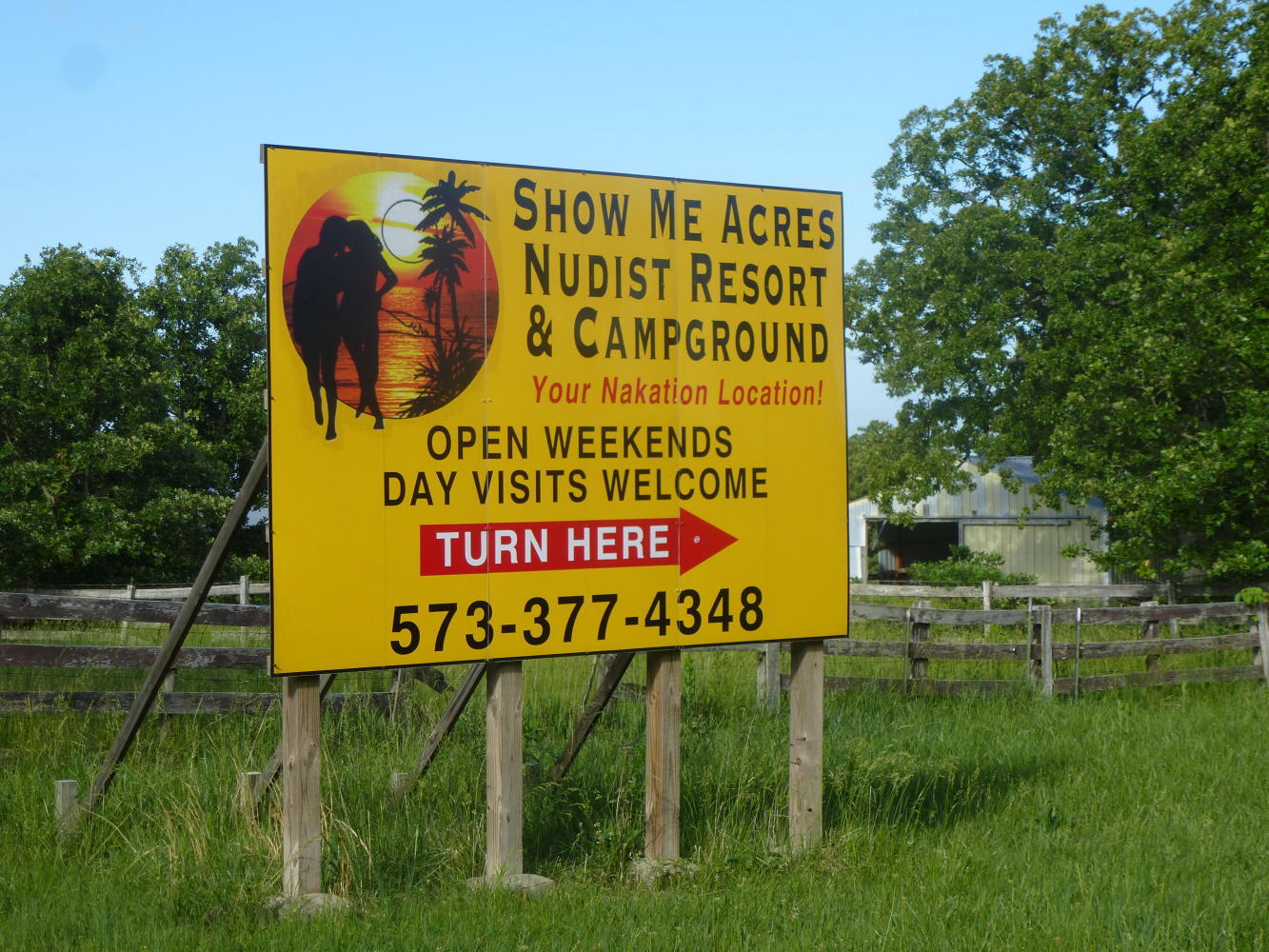May 30, 2014
Russellville to Stover
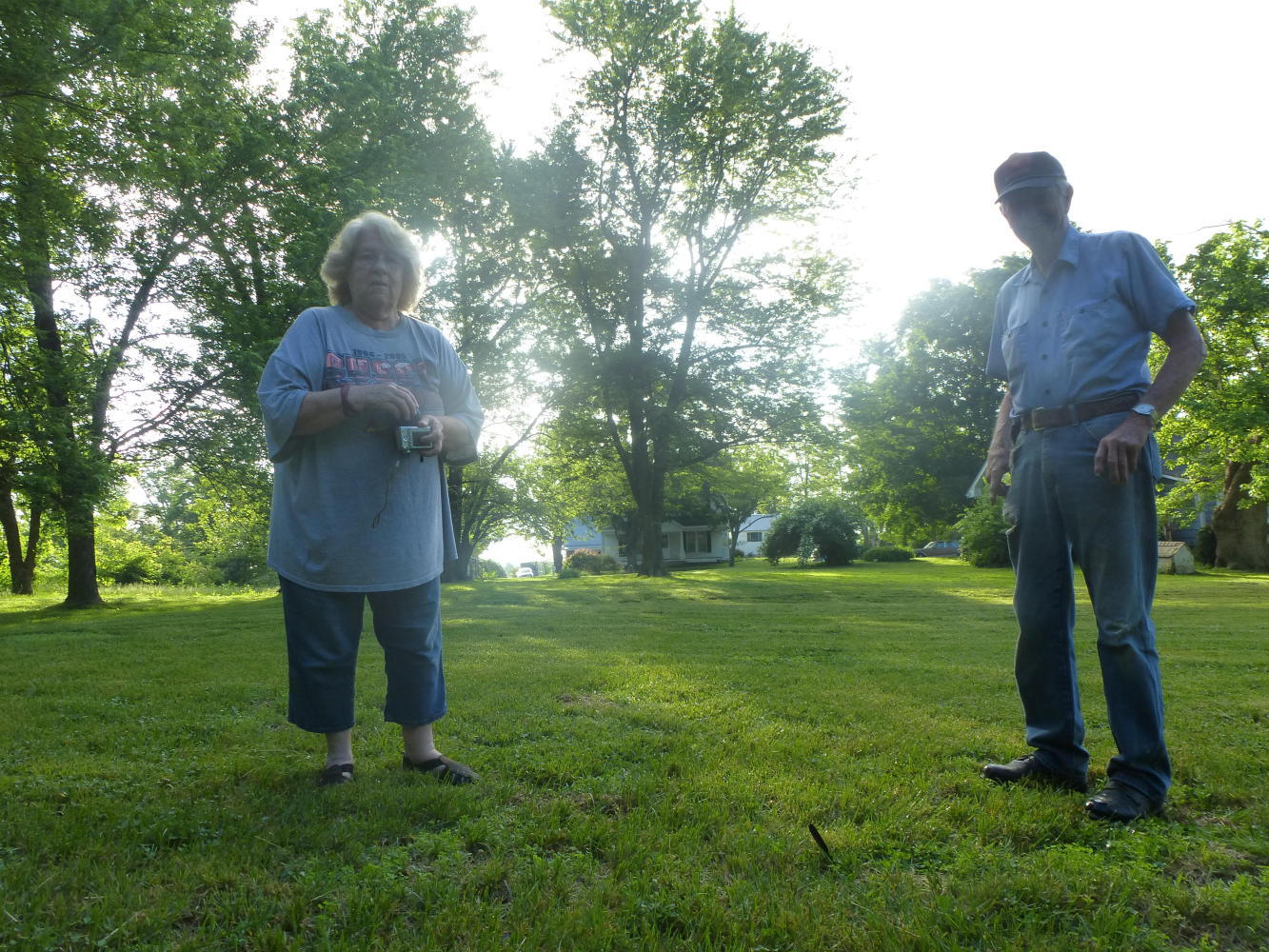
| Heart | 1 | Comment | 0 | Link |
NORRIS CAME OVER the moment I stuck my head through the door of the tent. I hadn't thought to ask his name the previous evening because the decision I could sleep behind his house was so quick.
"Came over, wondered if I could fix y'a coffee?" he said as he walked in a long-legged way across the lawn. He was dressed largely in blue, the sort of work clothes that speak of farming. And sure enough, he'd grown up on the family farm and then, among several jobs, he'd driven from farm to farm to collect milk in the days when it was left by the roadside in churns each morning.
"Had a gas station once, too," he recalled. He told me the name of the supplier, or perhaps the chain, but I've forgotten because it meant nothing to me. "Not like these days, of course. Back then, we still filled the cars ourselves, from the pump, and we'd wipe the wind shield and maybe check the oil under the hood."
He smiled at his choice of words. "British, they call that the bonnet, don't they? Funny how the words are so different but so sim'lar."
He's 79 now, Norris, and retired. But he's not the sort of man to sit idly and so he has taken to repairing clocks.
"I go out to folk's houses and I bring back the mechanism and mend it. Don't bring the whole clock back, just the mechanism."
I said he reminded me of a man I went to see in my childhood, a warm old man, he seemed then, from Poland. Everyone called him John, although probably his name was Jan. I realise now that, like many Poles, he had no country to go back to after the war and I wonder how many sadnesses his life contained. But then he was just John, the clock man, to whom we took anything that broke down.
"I don't know if it was a paid hobby for him or a living," I told Norris. And Norris was quite clear: "It'd have been a living, I'm sure. There were a lot more wind-up clocks then. Everything was wind-up." He pointed at his wrist. "No electronic watches back then."
I stood chatting with Norris and his wife, a warm and smiling woman, and then wound through the village to pick up the principle road. The sun shone, the traffic was light and a tailwind helped cope with the repeated hills. I'd been going for perhaps an hour when a blond woman in a blouse and jeans called from where she was standing with a couple of children.
"Where ya heading?" she shouted, and started walking towards the road in a signal that I should stop. Her name was Lynette and only one of a succession of children who came out to join us were hers. For years, she said, she and her husband had taken in children who'd had a hard start in life or were socially difficult. One, a girl who I think was 11, stood beside her showing warm affection for the woman who had become the new mother in her life.
"She din't have many clothes when she came to us," Lynette said in a rising tone that suggested a question as much as a statement. "So we went t' get her some and when we got back she threw them all on the ground because she'd never learned about hangers. So I got her some hangers and she looked at me and she said 'You're going to teach me about them, aren't you?'"
The girl smiled as she heard the story. Lynette was a loving mother, one of those women born to love children, even other people's, and the girl adored her.
More children came out, including her own 16-year-old daughter and a boy named Troy. I asked the boy if he knew where Troy was. He said he didn't.
"It's in Turkey. Do you know what happened there a long time ago?"
I told him how a beautiful woman called Helen had travelled from Greece to Turkey and how the Greeks launched a thousand ships to get her back. But Troy was walled and the soldiers couldn't get in. So they built a huge wooden horse on wheels, parked it at the gates and climbed inside. When the Turks saw it there, they pulled it into the city and the soldiers jumped out.
It was called the legend of the Trojan horse, I said. Although I wasn't sure whether I'd confused two separate stories, Troy listened with fascinated interest.
"We teach the children at home," Lynette said. "They're used to hearing stories and things like that, so he's a good listener. My husband is a teacher at a public school but, for our own children, he prefers they're taught at home because we don't like some of the things they're taught at school."
I didn't ask but I was in the conservative Bible Belt and I assumed the school taught evolution while the locals preferred creation.
This isn't just the Bible Belt but a Mennonite area. I saw women in their mouse-like outfits and prayer caps coming and going from shops. And I saw, house after house, the religious tracts they posted outside. At one absurd moment, a vivid sign insisted that "Jesus is returning" while a larger sign, a few paces on, said "It's never too soon to get your drains fixed."
I passed through busy Versailles, named after the royal French city but pronounced Ver-SAILS and soon after that into Stover, which has a gas station from the 1930s in its main street.
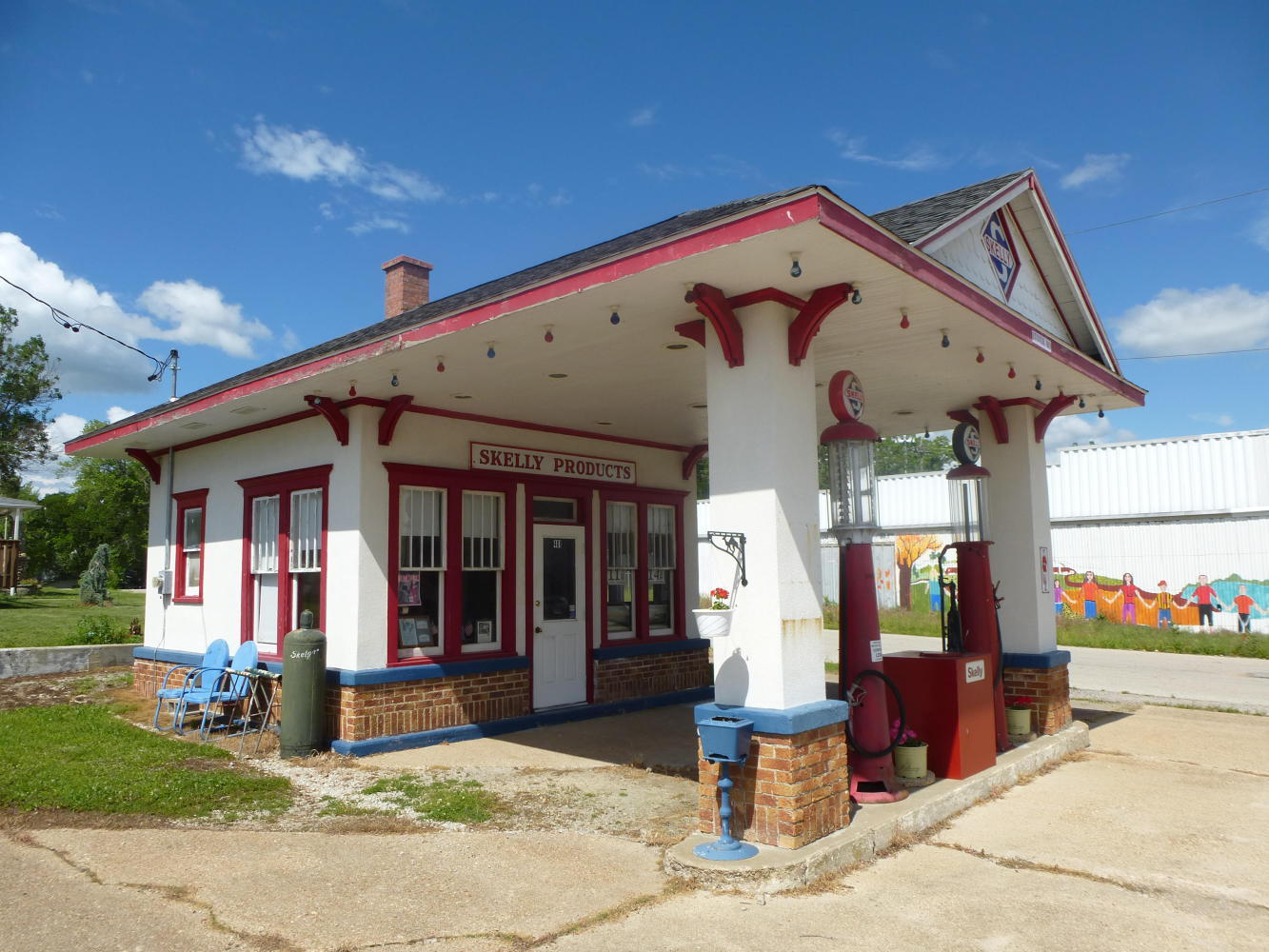
| Heart | 2 | Comment | 0 | Link |
"Old chap worked it until he was late into his 70s," the man across the road told me. "Got too much for him and he sold it. Died soon afterwards, too. Then someone else bought it and then he sold it and the current owner, he repaired the roof and restored the rest and got some of the original signs and turned it into a sorta museum. Not much to see inside but he'd show y'around if he was about the place.
"Bikers pull up sometimes, or people in fancy cars, and they take a picture because it's been in several mag'zines over the years. More people'd see it if it was out on the main highway, course, but in those days the traffic all came through town here. But it's good that folk stop. Keeps us on the map and they maybe spend a few dollars while they're here."
Today's ride: 73 km (45 miles)
Total: 2,268 km (1,408 miles)
| Rate this entry's writing | Heart | 2 |
| Comment on this entry | Comment | 0 |
